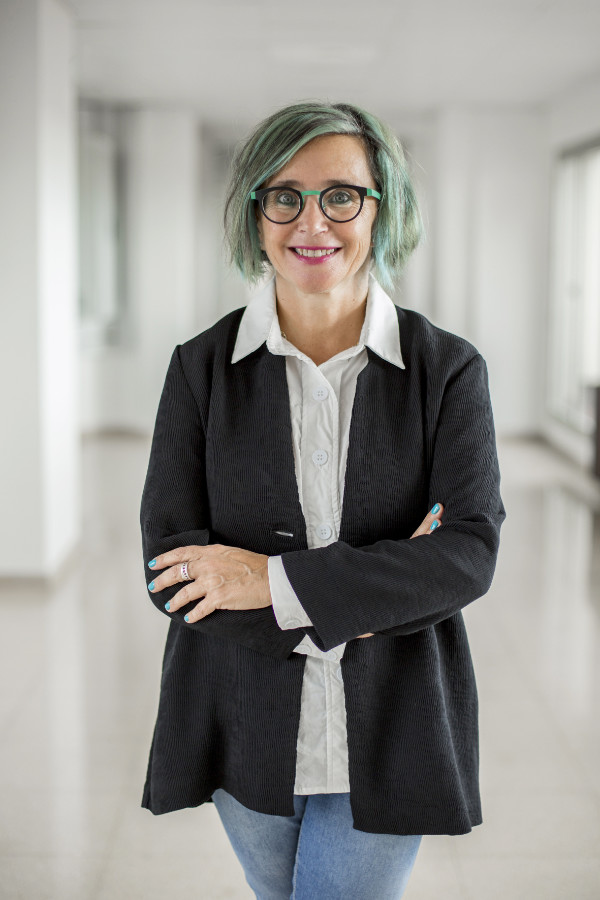About The Hereditary Cancer Group at IDIBELL
Hereditary Cancer Group is a multidisciplinary research group working on Hereditary Cancer at the Bellvitge Biomedical Research Institute (IDIBELL). Our work, whether clinical- or research-oriented, is focused on the improvement of healthcare of patients with a personal or a family history of cancer.
The overarching goal of our research activity is to gain insight into the molecular bases of hereditary cancer -with a particular interest in gastrointestinal cancer, Hereditary Breast and Ovarian Cancer and Rare Tumor predisposing syndromes – to improve genetic diagnosis and to personalize risk assessment for patients and relatives, as well as to individualize management regarding follow-up, treatment, and prophylactic and preventive measures.
The group participates in international and national initiatives aimed to improve variant classification in hereditary cancer genes, define clinical guidelines for hereditary cancer patients, and implement genomic-based personalized medicine in the National Health System.

The focus of research at at Hereditary Cancer Group
Hereditary Cancer Group is located in Catalonia, Spain
Hereditary Cancer Group members are located at Bellvitge Biomedical Research Institute (IDIBELL) in L’Hospitalet de Llobregat (Barcelona, Spain).


Hereditary Cancer Group Coordinators

Gabriel Capellá obtained his MD degree by the University of Barcelona in 1983. He trained as a general and digestive surgeon. His interest in translational cancer research lead him to a postdoctoral stay with Dr. Manuel Perucho the years 1989 and 1990 at La Jolla, USA. Back to Spain he spent 8 years at the Gastrointestinal Research Laboratory at the Hospital de Sant Pau where he focused his research in the molecular basis of pancreatic and colorectal cancer. He was Director of the Translational Research Laboratory of the Catalan Institute until 2011 where he is now Director of the Hereditary Cancer Program, role that he combines with being head of the IDIBELL Hereditary Cancer group. He is also the coordinator of the CIBERONC's Digestive Tract Tumors Research Program. He has pioneered the implementation of cancer genetics units and molecular testing of hereditary cancer in Spain. His research projects are centered in the detection and clinical and molecular characterization of Lynch Syndrome and Familial Adenomatous Polyposis, also in the development of novel technologies for genetic analysis. He is coauthor of more than 400 publications in international peer-reviewed journals and has co-founded the spinoff VCN Biosciences, aimed at the development of oncolytic virus-based therapies. He served as vice-director of Investigation and Innovation of the Catalonian Health Department from 2013 to 2016, when he was appointed Director of IDIBELL.

Dr. Conxi Lázaro is a molecular geneticist with more than 25 years of experience in the field of human genetics. She did her PhD in Human Genetics at University of Barcelona. She has worked in several clinical hospitals in Barcelona. She was an invited professor at Massachusetts General Hospital Cancer Center at Boston in 2003/04 and did a sabbatical stay at Mount Sinai Hospital and at Women’s College Hospital in Toronto in 2018/19. In the last ten years she has been involved in several projects aimed at using Next Generation Sequencing (NGS) for genetic testing purposes. Her field of expertise is Hereditary Cancer. Of relevance was her pivotal research in the genetic basis of Neurofibromatosis type 1 (NF1). She is member of several reputable international consortia and associations such as CIMBA, ENIGMA, CTF, GENTURIS. As a summary information of the scientific production, Dr. Conxi Lázaro has participated in more than two hundred scientific publications in indexed journals, being in many cases the first or last author. The cumulative impact factor is greater than 1000 and the average impact factor is 8.0. She has participated in more than 60 competitive research projects, being the Principal Investigator in more than half of them. For more than 20 years, Dr. Lázaro has demonstrated the ability to attract competitive resources, both national and international, from the public and private sectors. In addition, Dr. Lázaro has participated in the writing of several book chapters as well as in several reviews and scientific articles for the general public. During her sabbatical year in Toronto (2018/2019) she led the edition of a book on variant interpretation entitled Clinical DNA Variant Interpretation-Theory and Practice (Academic Press, 2021).
Dr. Gabriel Capellá Munar
Director of the Bellvitge Institute for Biomedical Research (IDIBELL)

Gabriel Capellá obtained his MD degree by the University of Barcelona in 1983. He trained as a general and digestive surgeon. His interest in translational cancer research lead him to a postdoctoral stay with Dr. Manuel Perucho the years 1989 and 1990 at La Jolla, USA. Back to Spain he spent 8 years at the Gastrointestinal Research Laboratory at the Hospital de Sant Pau where he focused his research in the molecular basis of pancreatic and colorectal cancer. He was Director of the Translational Research Laboratory of the Catalan Institute until 2011 where he is now Director of the Hereditary Cancer Program, role that he combines with being head of the IDIBELL Hereditary Cancer group. He is also the coordinator of the CIBERONC's Digestive Tract Tumors Research Program. He has pioneered the implementation of cancer genetics units and molecular testing of hereditary cancer in Spain. His research projects are centered in the detection and clinical and molecular characterization of Lynch Syndrome and Familial Adenomatous Polyposis, also in the development of novel technologies for genetic analysis. He is coauthor of more than 400 publications in international peer-reviewed journals and has co-founded the spinoff VCN Biosciences, aimed at the development of oncolytic virus-based therapies. He served as vice-director of Investigation and Innovation of the Catalonian Health Department from 2013 to 2016, when he was appointed Director of IDIBELL.
Dr. Conxi Lázaro
Director of the Molecular Diagnostics Unit at Institut Català d'Oncologia (ICO)

Dr. Conxi Lázaro is a molecular geneticist with more than 25 years of experience in the field of human genetics. She did her PhD in Human Genetics at University of Barcelona. She has worked in several clinical hospitals in Barcelona. She was an invited professor at Massachusetts General Hospital Cancer Center at Boston in 2003/04 and did a sabbatical stay at Mount Sinai Hospital and at Women’s College Hospital in Toronto in 2018/19. In the last ten years she has been involved in several projects aimed at using Next Generation Sequencing (NGS) for genetic testing purposes. Her field of expertise is Hereditary Cancer. Of relevance was her pivotal research in the genetic basis of Neurofibromatosis type 1 (NF1). She is member of several reputable international consortia and associations such as CIMBA, ENIGMA, CTF, GENTURIS. As a summary information of the scientific production, Dr. Conxi Lázaro has participated in more than two hundred scientific publications in indexed journals, being in many cases the first or last author. The cumulative impact factor is greater than 1000 and the average impact factor is 8.0. She has participated in more than 60 competitive research projects, being the Principal Investigator in more than half of them. For more than 20 years, Dr. Lázaro has demonstrated the ability to attract competitive resources, both national and international, from the public and private sectors. In addition, Dr. Lázaro has participated in the writing of several book chapters as well as in several reviews and scientific articles for the general public. During her sabbatical year in Toronto (2018/2019) she led the edition of a book on variant interpretation entitled Clinical DNA Variant Interpretation-Theory and Practice (Academic Press, 2021).